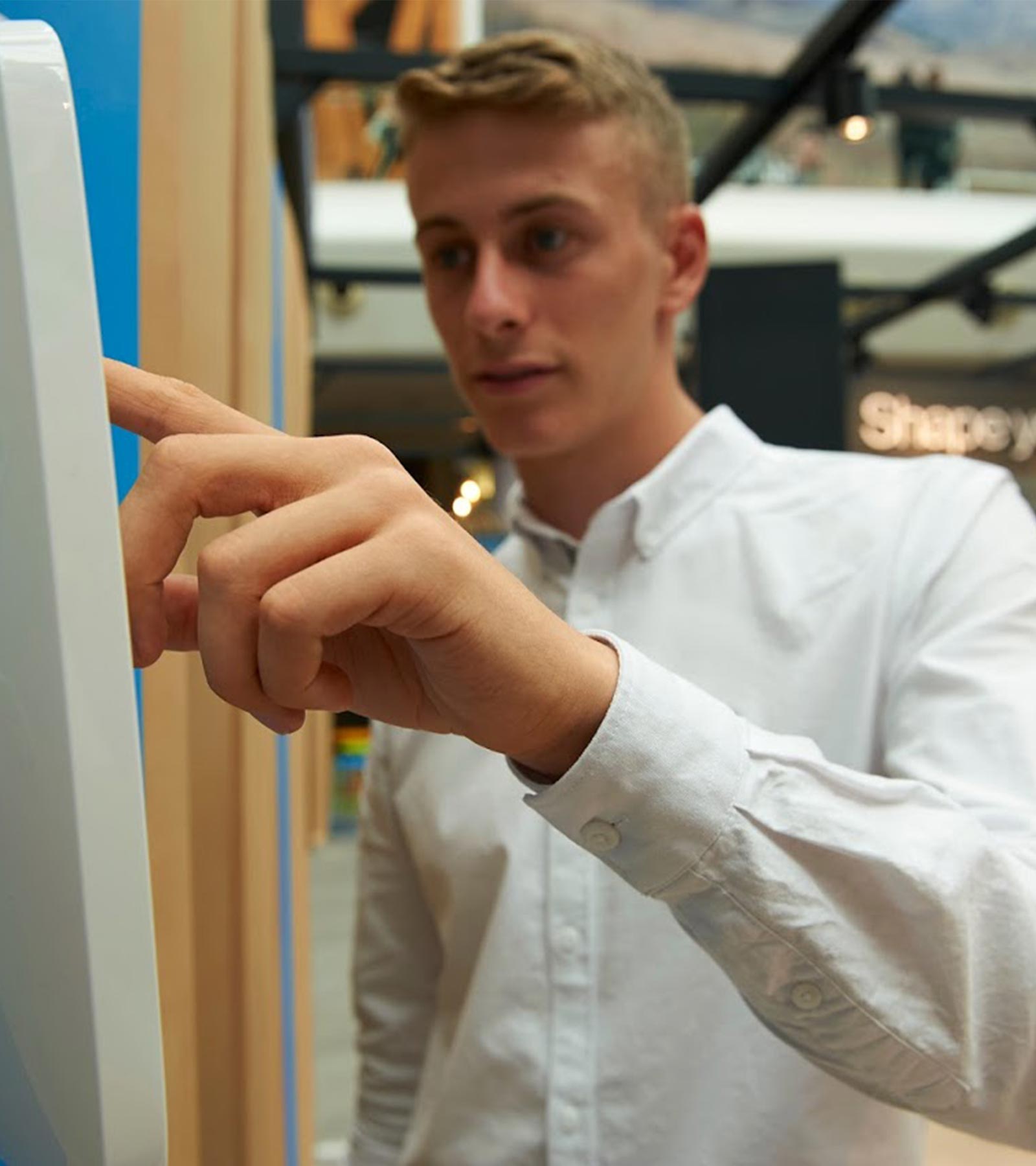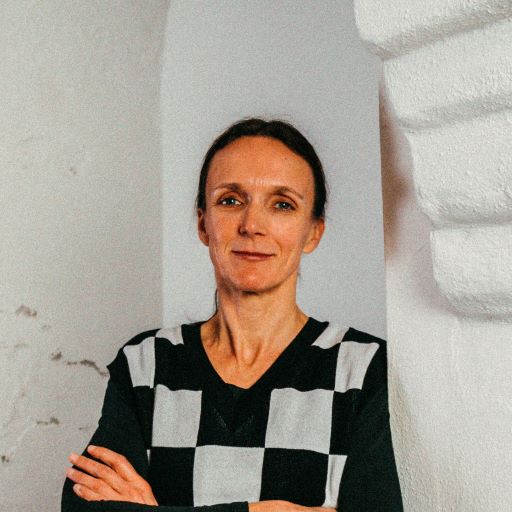The Challenge
Invisalign pioneered digital orthodontics when the world was still wearing metal braces to correct its teeth. It’s business model is heavily reliant on advanced technology – 3D intraoral scanning, data modelling using artificial intelligence, visualization of the potential outcomes, and producing an array of invisible braces using state-of-the-art 3D printing techniques.
The clear aligners are administered by dental professionals – orthodontists and dentists – to consumers. The brand was looking to build more powerful connections with its end users. But how do you bring such a complicated, technology-heavy, digital first experience to life?
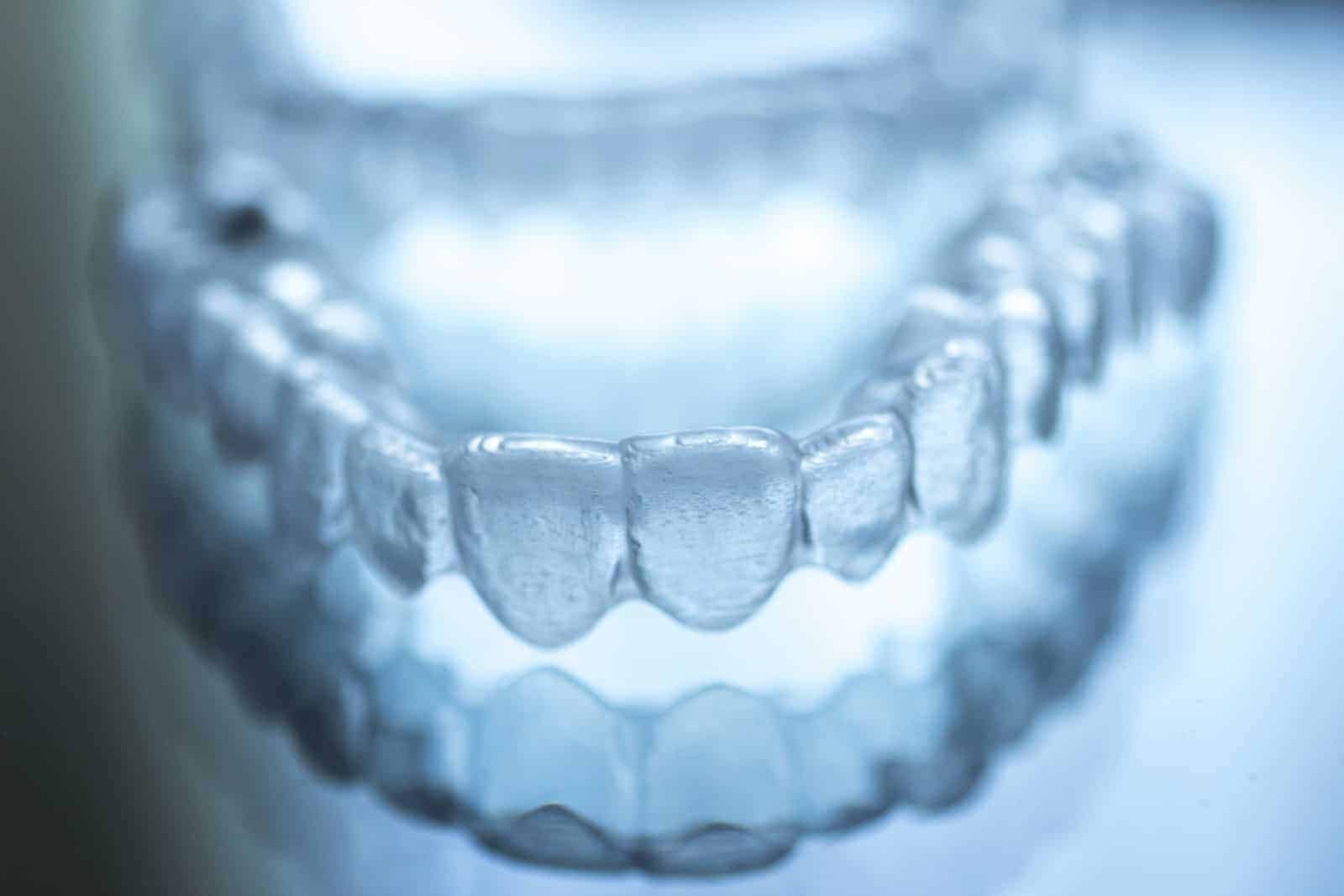
A focus on interactivity and consumer engagement.
Invisalign’s clear aligners are – as you would expect – nearly invisible. The product – or what the consumer actually sees of it – itself is a small, transparent plastic device.
But what is crucial is what that product can do for a consumer, or Invisalign patient. Provide more confidence through a healthy, beautiful smile.
With Invisalign, a consumer is first scanned at an orthodontist or dental office with the iTero scanner. Then, the Invisalign software and artificial intelligence platform behind the scenes models what a consumer’s future smile can look like. The orthodontist or dentist can adjust where needed, and the potential patient approves their future smile. Invisalign then uses 3D printing to manufacture a custom set of aligners, one for each week of treatment. And by changing the aligners weekly, the user changes their smile!
The visualization of this process is a key part of the experience and became the center of the experiential project with Invisalign: how to make a medical product fun and tangible?
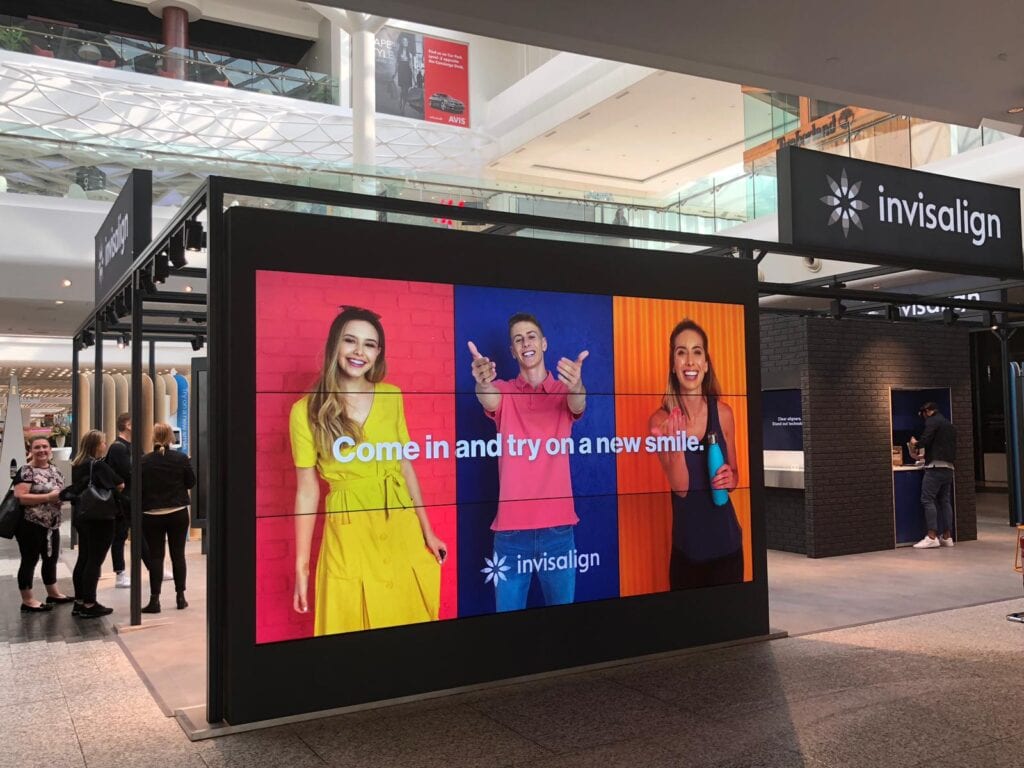
The Concept
Invisalign centered its concept on two fundamental ideas:
- Enabling consumers to try on their new smile themselves
- Connecting interested visitors to Invisalign doctors for treatment.
Thus, the program was named “Invisalign Connect”.
The Idea
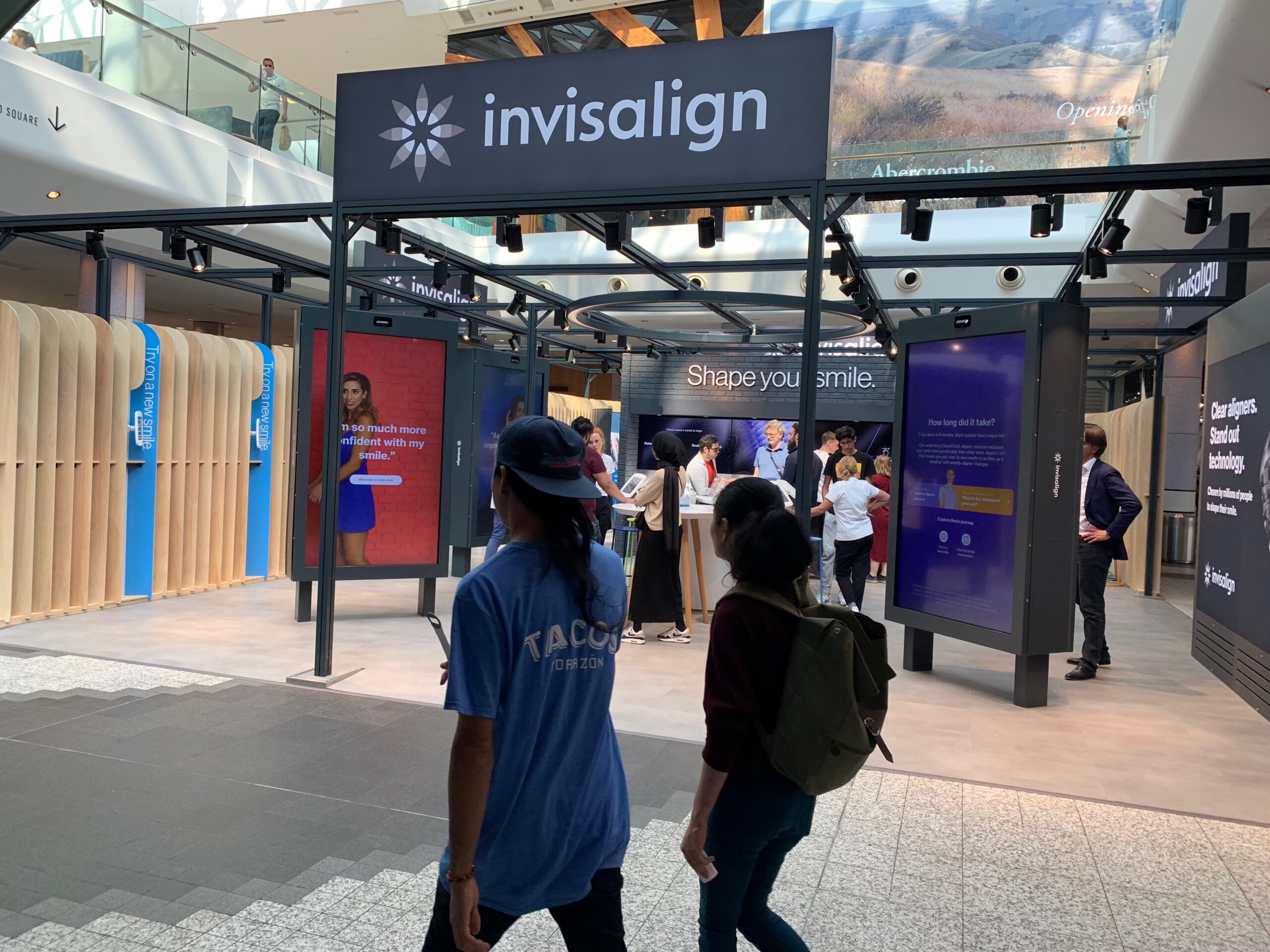
Results
The Invisalign Connect program opened up a whole new way for Invisalign to communicate with and relate to consumers. Instead of being reliant on a consumer experience offered by third parties – orthodontists and dentists – the program brought the brand in direct contact with its target audience.
A Halo Effect
Besides bringing many new consumer groups into the brand and expanding its total addressable market, another interesting effect took place.
By positioning the experiential program as connecting consumers not only with the brand, but also with doctors for treatment, a halo was created. Not only did these doctors receive new patients in their practice, but they also upgraded the consumer experience on their end.
Being part of the program meant that they needed to adhere to certain standards to optimize customer experience and lead conversion. This in turn led to an acceleration of brand adoption and a win win situation for both Invisalign, the dentists and orthodontists, as well as the end consumers.
A consumer-/patient centric ecosystem
By combining the efforts of both Invisalign and the dentists, a multi-layered ecosystem was created around the consumer. This consisted of the marketing and branding efforts of Invisalign, the consumer experience program, online and digital activities, and the marketing and branding efforts of the dentists, as well as the patient experience in practice. In this way, the dentists and Invisalign mutually reinforced each other.
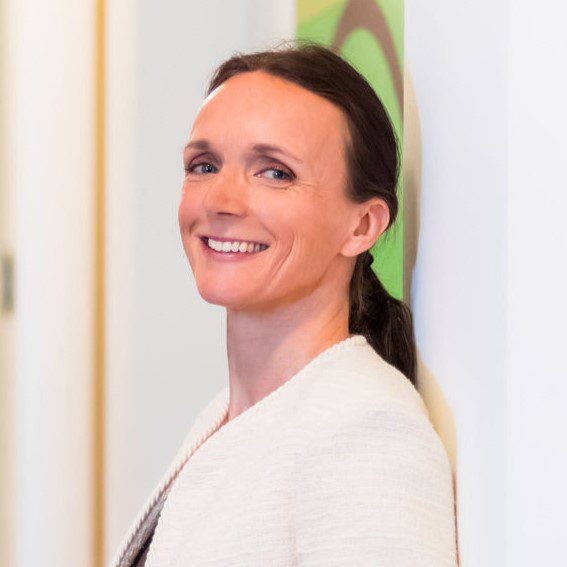
“Any company, large or small, can achieve long-term, sustainable growth. It ‘just’ takes a clear vision, solid strategic choices and then a relentless focus on execution.”
Alexandra van der Stap
Nextrday

